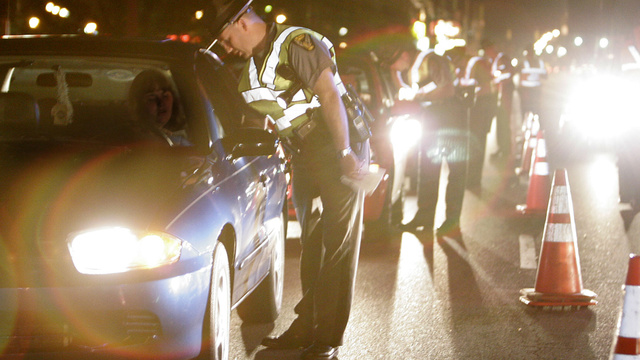Maybe Safe Rides Home, And Not Tougher Penalties, Are A Better Solution For Drunk Driving

When it comes to drunk driving there is a tendency, in the arena of public debate, to suppose that the best solution is a “get tough” approach. The only initiatives policymakers and the public seem interested in are more enforcement, more fines, and more jail.
But what if there was a better way? I’ve been asking that question for some time now. Because what’s our goal when it comes to DUI laws? Is it putting drinkers in jail, or is it keeping roads safe?
If we can agree that the latter is the priority, then perhaps this safe ride home program a New Jersey city has launched in partnership with Uber is worth considering:
To keep the roads safe in Evesham Township, a town of 45,000 people in southern New Jersey, anyone drinking in at least 19 alcohol-serving establishments can now get a free ride home from Uber in a program funded by donors and started last week.
Donations from area nonprofits and businesses are also funding a second free ride option that started on Friday: the mobile app BeMyDD, through which people can hire a driver to get both them and their car home.
“We’re dealing with people who might’ve had too much to drink, so we needed to make it so easy for them to open their iPhone and push a button,” Evesham Mayor Randy Brown said.
Evesham was already on pace to set a DUI record, so they’ve got a lot riding on this. But there is data to suggest that the approach may work.
As I noted when Uber moved into the Fargo market, the ride sharing company has an impact on drunk driving rates. A study conducted by professors at Philadelphia’s Temple University found a reduction of alcohol-related traffic fatalities by 3-5 percent within three months of Uber moving into a market.
Correlation is not necessarily causation, of course, but it wouldn’t be surprising to learn that when people are given easier and cheaper access to safe rides home after a night of drinking they avail themselves of it to the benefit of overall public safety.
Which is why I think Evesham’s approach is going to work out. We’ll never eliminate drunk driving, of course. There will always be some who choose to act irresponsibly no matter what the circumstances, and for them there should continue to be consequences. But with DUI penalties already plenty stiff, we may be reaching a point of diminishing returns with the “get tough” approach.
So why not try another approach aimed at giving people safe, guilt-free ride homes?
Because, again, DUI policies shouldn’t be driven by moral self righteousness but rather a desire for safe roads.




